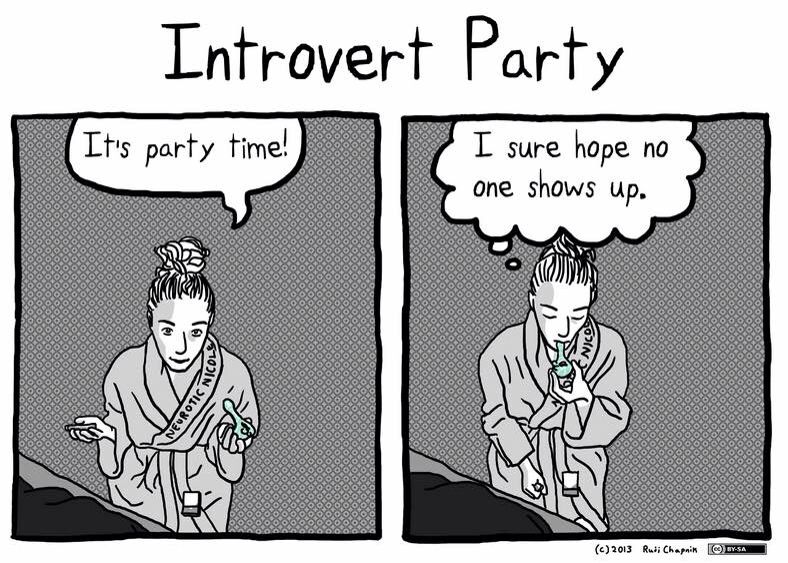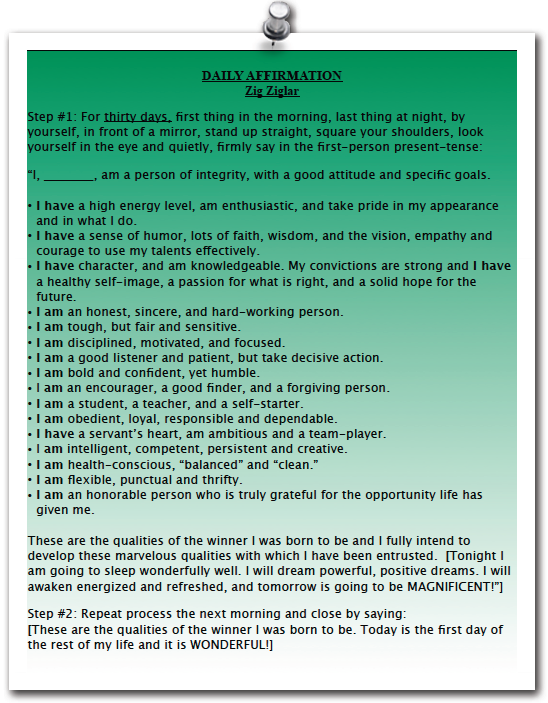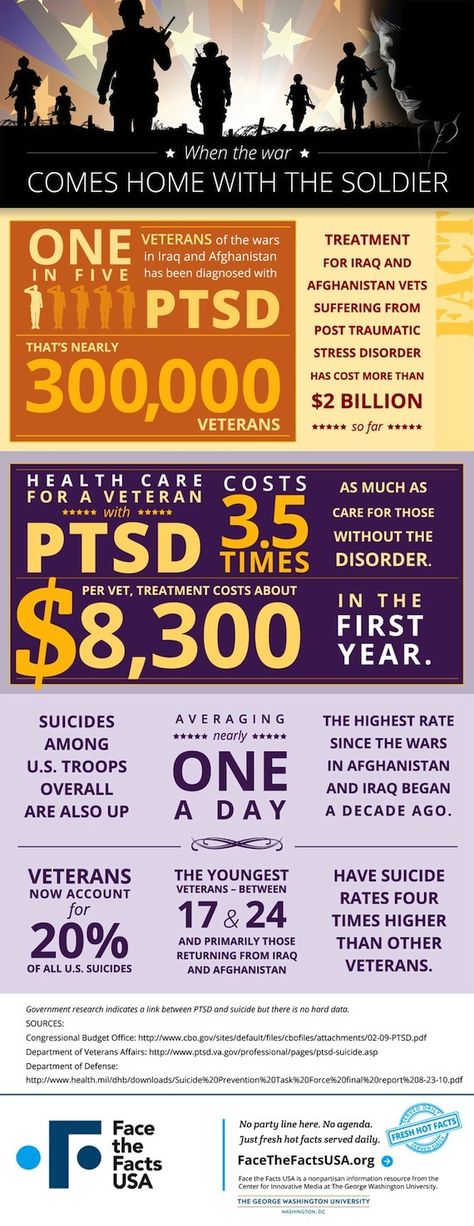Why introverts hate parties
Why Introverts Don't Like Parties
Perhaps you are an extrovert, an introvert, or perhaps an 'ambivert'—a mix of the two tendencies?
You're no doubt familiar with these terms. Extroverts are those individuals who crave excitement. They often take chances, and they tend to act on the spur of the moment. They find it hard to motivate themselves to finish tasks, and they may need deadlines to goad themselves into action. Extroverts generally have lots of friends, and they love to party.
Introverts, on the other hand, prefer to avoid excitement and pressure from the outside world. They're more reserved and thoughtful, unwilling to make quick decisions. They prefer quiet environments. Introverts feel most comfortable with a few close friends—some, in fact, actually dread crowds and will avoid large social gatherings at all costs. This kind of aversion to social situations could also however be a sign of social anxiety, for which it might be worthwhile seeking
professional help.
It will have been evident from an early age whether you're more of an extrovert or an introvert. Most psychologists agree that this tendency has a genetic basis, and that it's generally consistent throughout an individual's life.
Eysenck claimed that introverts have a more active reticular activation system, so they are by nature already highly stimulated.
Hans Eysenck, the psychologist who worked most to develop this dimension of personality, believed that the difference between introverts and extroverts is determined by the reticular activation system, or RAS. This is the area in our brain that controls our level of arousal. Eysenck claimed that introverts have a more active RAS, so they are by nature already highly stimulated. They don't, therefore, seek further encouragement to feel aroused, and they may even avoid situations where they're put under pressure to meet deadlines or to socialise frequently.
On the other hand, Eysenck believed that extroverts are constitutionally under-stimulated. They have a relatively quiet RAS, so they need to obtain arousal from outside themselves. Extroverts therefore seek the very crowds and deadlines that introverts work so hard to avoid.
You can find out precisely where your own proclivities lie by undergoing a full personality assessment. However, such assessments tend to be expensive and time-consuming. A quicker way to help you decide is to complete one of the many introversion/extroversion questionnaires you can find online.
Given that this aspect of personality is so well ingrained, I believe it's easier to work with your natural inclination than it is to fight against it. Here are my suggestions in two important aspects of daily life—friendships and work--so you can capitalise on, rather than fight against, this important aspect of your personality.
Friendships
If you're an extrovert, you'll want to spend lots of time with other people, and you're likely to choose others like yourself to accompany you on social outings.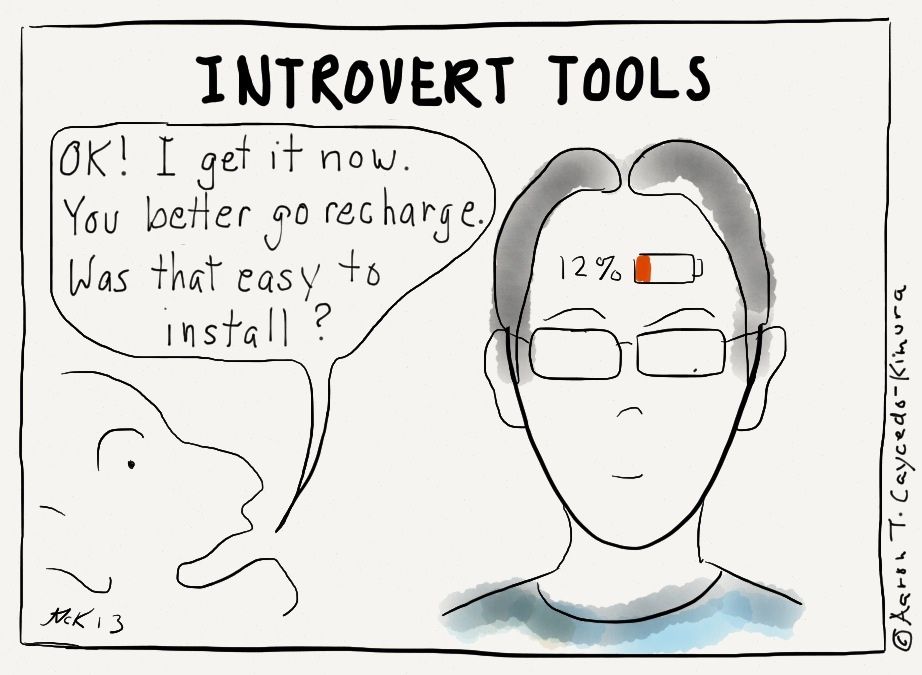 That's great in terms of a good time, but there is a danger that you could lose the necessary balance between energy expenditure and rest. It's important, therefore, that you allow yourself regular opportunities to relax. It will also help if you make sure that at least one good friend—or better yet, your partner—is more introverted than you are. That way, your partner can remind you of the need for quiet reflection, and you in turn can encourage them to reach out.
That's great in terms of a good time, but there is a danger that you could lose the necessary balance between energy expenditure and rest. It's important, therefore, that you allow yourself regular opportunities to relax. It will also help if you make sure that at least one good friend—or better yet, your partner—is more introverted than you are. That way, your partner can remind you of the need for quiet reflection, and you in turn can encourage them to reach out.
Extroverts should have at least one good friend who is more introverted than them.
Those of you who are more introverted will also value your friendships of course, but you'll be more particular, more likely to consider only a few people to be true friends. That's great in one way, because you'll find it easier to stay in touch with all of them. On the other hand, because there are so few, you may worry that you'll ask too much of any one of them. It's wise, therefore, for you to think in terms of 'levels' of friendship. You can enjoy the company of your few very close friends, but make sure there are some others who matter to you as well and with whom you also stay in touch. As with extroverts, try to make sure that one close friend or your partner is quite unlike you with regard to this dimension. That way, you'll achieve the best balance in both your lives between expending and replenishing your energy.
You can enjoy the company of your few very close friends, but make sure there are some others who matter to you as well and with whom you also stay in touch. As with extroverts, try to make sure that one close friend or your partner is quite unlike you with regard to this dimension. That way, you'll achieve the best balance in both your lives between expending and replenishing your energy.
Work
If you're an extrovert, you'll be happiest in a job that involves lots of teamwork and plenty of social contact—for example, interacting with the public on a daily basis. You're likely to thrive in an open plan office, and you'll need deadlines to help you organise your workload.
If you're an introvert, you'll prefer to have your own space at work, or at least a place where you can retreat to think and be on your own. Projects that require quiet reflection will appeal to you. No one loves a deadline, but introverts find them particularly threatening. You'll feel less stressed, therefore, if you consider imposed deadlines to be 'fall-backs'.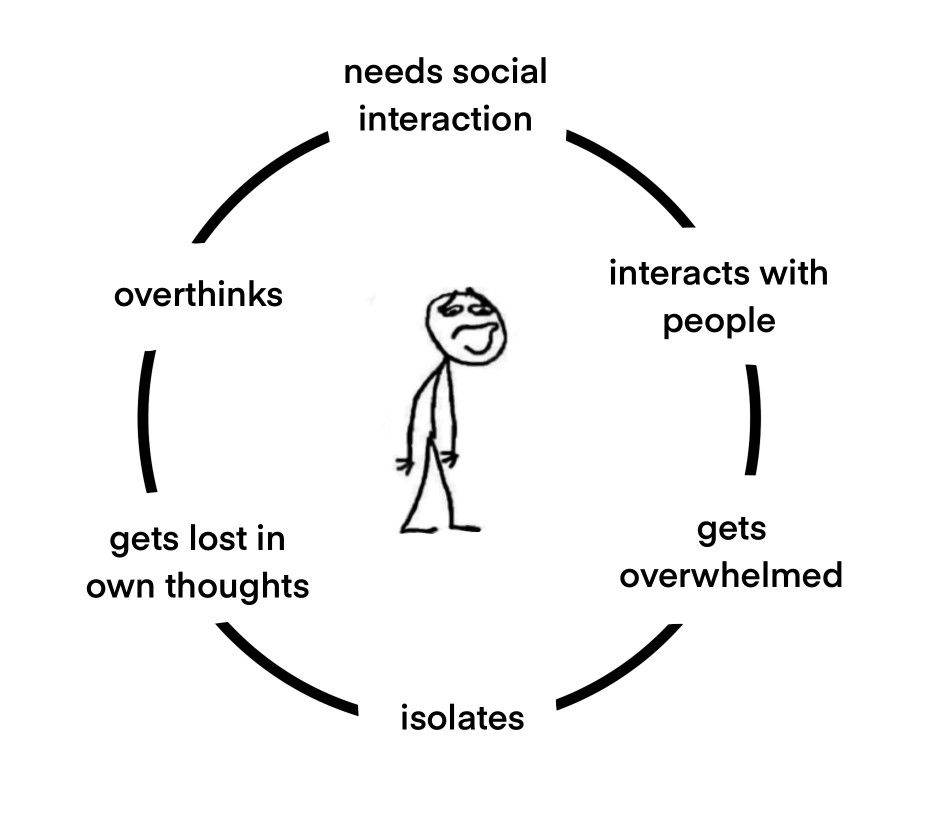 Set your own deadlines in advance of those you're given—that way, you'll feel more in control and less exposed to external stress.
Set your own deadlines in advance of those you're given—that way, you'll feel more in control and less exposed to external stress.
Whether you're an introvert or an extrovert, the secret to making this dimension of personality work for you is to know where you lie along the introvert/extrovert dimension, and then to capitalise on the strengths your tendency affords you.
It's estimated that extroverts outnumber introverts at a ratio of about three to one.
In Western society today, it's estimated that extroverts outnumber introverts at a ratio of about three to one. Furthermore, many argue that the qualities possessed by extroverts are valued more highly than those of introverts.
While I think it is true that extroverts outnumber introverts, the idea that it's better to be an extrovert than an introvert is a belief more commonly held in the US than it is in Europe – and even in America, the qualities of both introverts and extroverts are recognised and valued.
Further reading
How do I know if I'm introvert or extrovert?
Can you be a confident introvert?
The all-or-nothing personality type: good or bad?
11 tips for highly sensitive people at work
Surviving the city as a highly sensitive person
Start the journey to improve your quality of life
Begin search
For Introverts, Skipping the Big Party Is About Mental Health
As an introvert, I need to say no to certain activities to maintain my mental wellbeing.
Sometimes I feel I’ve never done anything fun where I didn’t simultaneously wish I was home in bed. No matter how much I’m looking forward to something, when I put it on my calendar, I end up dreading it as the day approaches.
It doesn’t matter if it’s a party, a vacation, or any other special occasion. About 24 to 48 hours in advance, my anxiety kicks in, and I find myself wishing I was doing pretty much anything besides attending a social event.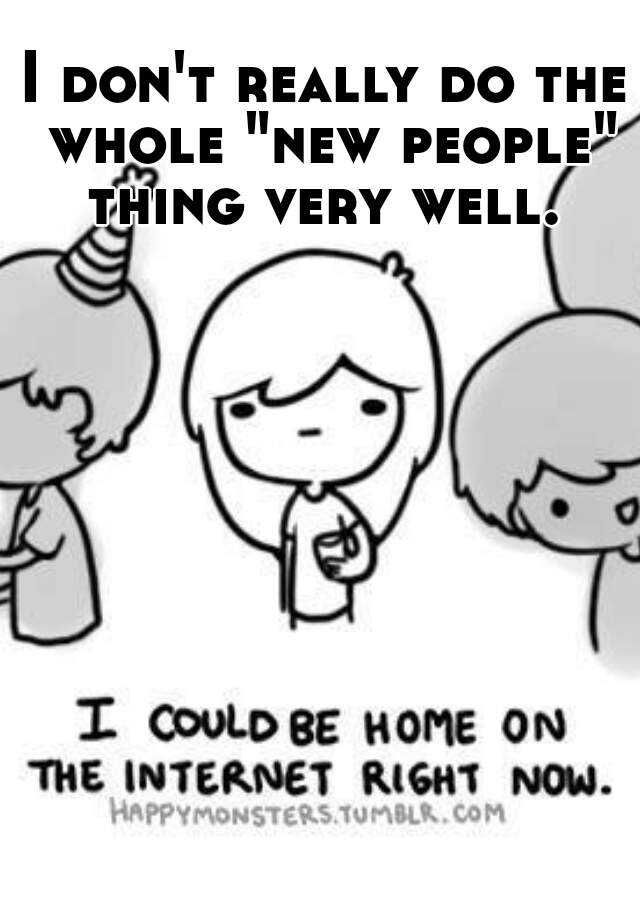
I’m an introvert, and I’m also a highly sensitive person (HSP). Loud parties and raucous bars hold no appeal for me. My usual happy place is curled up in my apartment with my music at just the right decibel level, the heat at the perfect temperature, and the lights dimmed to a low glow.
Sounds peaceful, right?
Now imagine a crowd of 100,000 people on a Saturday night in Munich, attending Oktoberfest, one of the craziest, most world renowned parties in existence. That image is very unlike my usual happy place, yet it was where I found myself on a recent trip to Europe.
If you think this sounds like a bad idea, you’d be correct.
Sometimes Even Introverts Crave Adventure
My experience at Oktoberfest was part of a tour of Europe with a group of about two dozen other 20-somethings. For 10 days I lived with, ate with, shared a bus with, and walked the streets with a group of complete strangers.
Not only did I embark on this trip willingly, but I forked over quite a large chunk of my hard-earned savings to go.
Just because I’m an introvert and HSP doesn’t mean I don’t crave the occasional adventure and excitement. It just means this need is also at odds with my desire to control my surroundings and, therefore, my energy levels. It’s a struggle I live with every day, and neither part of my nature ever feels completely satisfied.
When I tell people I’m an introvert, or when people observe my quiet nature, they have a tendency to assume that all I like to do is stay home and read books. That’s a fair assessment, especially since I talk about my homebody nature quite a bit.
Yet while I consider being alone my natural state, that doesn’t mean I don’t enjoy doing other things as well, such as occasionally traveling to foreign countries and meeting new people. It just means that before I start enjoying these things, I’m often filled with an overwhelming sense of dread.
Sometimes this feeling subsides enough for me to start having fun. But sometimes it doesn’t.
An Introvert’s Nightmare
As I left the hotel the night of Oktoberfest, I was filled with more than my fair share of trepidation.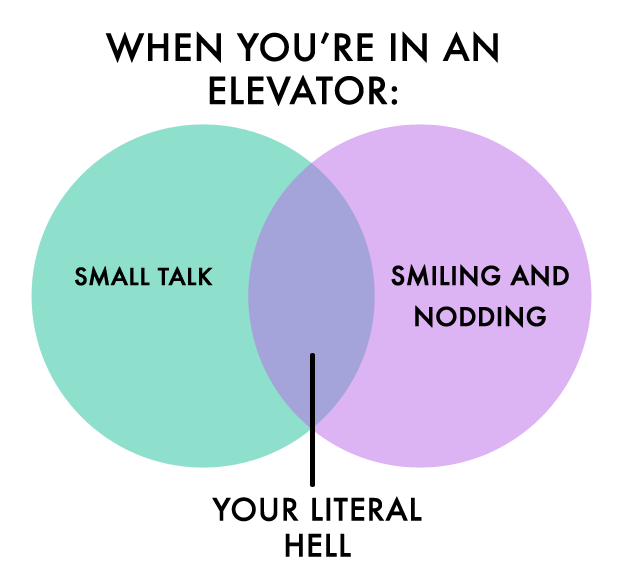 But I told myself that I was just overreacting. I was 24 years old and currently experiencing the trip of a lifetime. If I was ever going to go out and get crazy, it was definitely tonight.
But I told myself that I was just overreacting. I was 24 years old and currently experiencing the trip of a lifetime. If I was ever going to go out and get crazy, it was definitely tonight.
Except I knew deep down this wasn’t going to be something I’d actually enjoy. I rarely get anything more than tipsy even at home, and that’s where I’m familiar with my surroundings and know the language the bartender is speaking.
As I joined the crushing crowd of Oktoberfest partiers, I felt myself kicking into sensory overload. The noise was deafening, and I had to scream into the ear of my friend next to me to be heard. I clung to the sleeve of her shirt so we wouldn’t be separated in the throng of people, but I found it nearly impossible to keep my grip as I was jostled on all sides.
It took what felt like hours to make it several hundred feet to the closest beer tent. Even after shoving our way inside where the throng was slightly less dense, I felt agitated, shaky, and a little dizzy.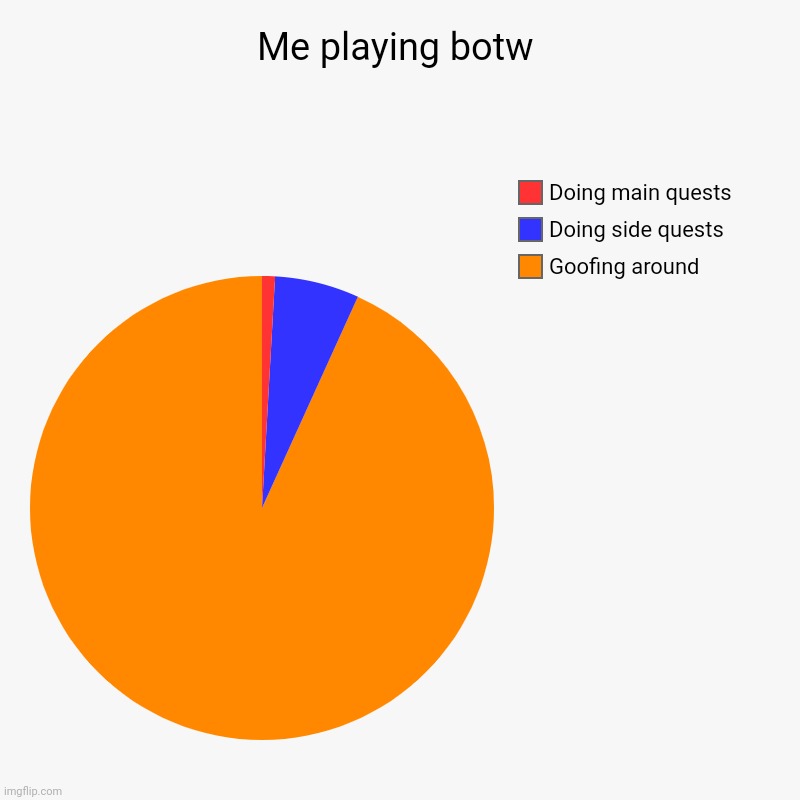
Believe me when I say these were not happy, adrenaline-fueled responses.
I was overstimulated and completely overwhelmed.
I knew this feeling would only grow worse as the evening progressed. My gut was telling me to leave. One other introvert in our group was not having a good time either, and despite not even knowing her name before that night, we managed to communicate that we both wanted to get out.
I Say No to Preserve My Introvert Battery
I’d like to tell you that I felt empowered by my decision to leave Oktoberfest. Unfortunately, that’s not wholly the truth.
The next morning, my friends were full of stories about dancing on tables and meeting cute guys from foreign countries. Once again, I felt that all-too-familiar inner war between the part of me that wishes to be spontaneous and the part of me that longs for my comfort zone.
Did I make the right decision last night?
Controlling my energy levels, and the sense of overstimulation that is directly tied to it, is a balancing act. Many compare being an introvert with having an internal battery that is easily depleted and needs to be recharged after exposure to other people. When I go on a big vacation, especially with people I don’t know, I want to use this battery.
Many compare being an introvert with having an internal battery that is easily depleted and needs to be recharged after exposure to other people. When I go on a big vacation, especially with people I don’t know, I want to use this battery.
But the reality is I need to do so sparingly in order to make it last the whole trip — and that’s okay.
I believe, in the end, I did make the right decision. Sometimes you gotta fight for your right not to party.
Join the introvert revolution. Subscribe to our newsletter and you’ll get one email, every Friday, of our best articles. Subscribe here.
For Introverts, It’s About Maintaining Mental Health
As an introvert, I need to say no to certain activities to maintain my mental health. That might mean skipping the big party. Or going home early, even if others are staying late.
Unfortunately, that’s not something everyone understands.
The struggle might be mental rather than physical, but for me, it’s no different than refusing a piece of cake that might give me a stomachache or a liter of Oktoberfest beer that might induce a hangover.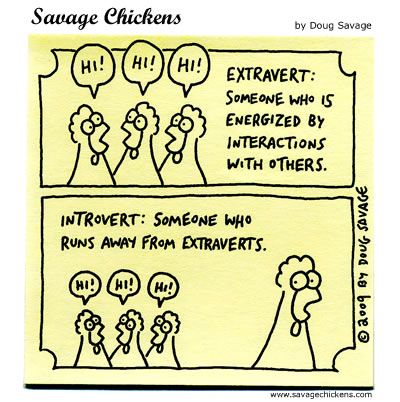 No one would judge a person for making decisions based on their physical health, so quit judging introverts for attempting to maintain their mental health.
No one would judge a person for making decisions based on their physical health, so quit judging introverts for attempting to maintain their mental health.
There are few hard-and-fast rules for maintaining mental health like there are for healthy eating. You need to figure out what works for you based on your own level of introversion or extroversion. One person’s party might be another person’s worst nightmare. The key is not trying to be wild and spontaneous as someone else sees it, but being wild and spontaneous for who you are as an individual.
I’m still finding that balance, but the more I test my comfort zone, the closer I come to finding where my boundaries lie.
Perhaps next time, I might consider dancing on a few tables. Or maybe I’ll just dance at home by myself, where the lighting is perfect and the volume of the music is just right.
You might like:
- Introverts Don’t Hate People, They Hate Shallow Socializing
- 8 Confessions of an Introvert Living in a World Made for Extroverts
- 12 Signs That You Have an ‘Introvert Hangover’ (Yes, It’s Real)
12 Introvert Thoughts You Didn't Know About
February 3, 2017Relationships
Do you feel like your friend or acquaintance is constantly avoiding you? Or just don't like it? Do not rush to conclusions.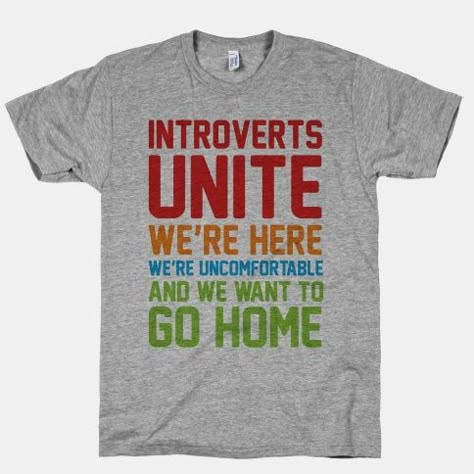 Maybe he's just an introvert.
Maybe he's just an introvert.
Share
0Introverts are not hermits who hate everyone around them. In fact, they really like to chat with close friends or people who share their interests (but the art of small talk is clearly not for them). Introverts also like to seek adventure on their own head, they just don’t always need company for this. They can be great leaders, good listeners, and devoted friends. After all, introverts are people too. But sometimes they can be very difficult to understand ... and forgive.
If, when interacting with introverts, you are increasingly asking yourself the questions “Why is he acting so strangely?”, “What is wrong with me?”, “Am I a bad conversationalist?”, “Is he bored with me?”, “Am I annoying? ”,“ Hey, where did he run away to? ”, It’s better to immediately discard self-digging and read about what strange thoughts sometimes come to the mind of representatives of this psychotype. And if you are an introvert .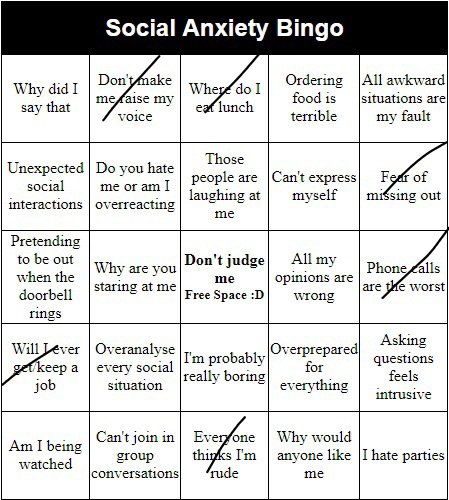 .. well, you yourself know everything.
.. well, you yourself know everything.
1. I hope no one tries to drag me out of the house tonight.
We all need to get under the covers sometimes, turn off the phone and spend the whole day in blissful doing nothing. But for introverts, this desire comes much more often.
Therefore, don't be surprised that sometimes your introverted friend or acquaintance will refuse to go to the movies and fun parties, explaining this by a headache, a bunch of things to do, the need to celebrate the cat's birthday, and so on. Just be prepared to hear "no".
And don't try to surprise an introvert and disturb his self-imposed seclusion. Otherwise, from your own experience, make sure that shyness has nothing to do with introversion.
2. If I quickly run from the bathroom to my room, then maybe my neighbor will not notice me
Sometimes introverts feel the need to hide from their roommates. If you are the neighbor, don't worry. Most likely, it's not about you. It's just that sometimes introverts hide from even the nicest people, just to avoid having to exchange a few words with them. So if you see your neighbor running, be understanding and don't show it.
It's just that sometimes introverts hide from even the nicest people, just to avoid having to exchange a few words with them. So if you see your neighbor running, be understanding and don't show it.
3. I hope someone here took a pet with them.
Yes, introverts don't hate others (at least not more often than everyone else). But sometimes they feel much more comfortable in the company of our smaller brothers. The dog will not judge you for not going to university, will not force you to talk about the weather and politics or take pictures with her. Sometimes this is exactly what an introvert's ideal companion should be.
4. Who is calling me from this number? Everyone who knows me knows that I hate talking on the phone
Usually introverts don't like talking on the phone, so calls from unknown numbers send them into a panic. If they do not wait for a call from someone specific, then most likely they simply will not answer. And even if you call from your previous number, it is unlikely that they will talk to you for more than five minutes.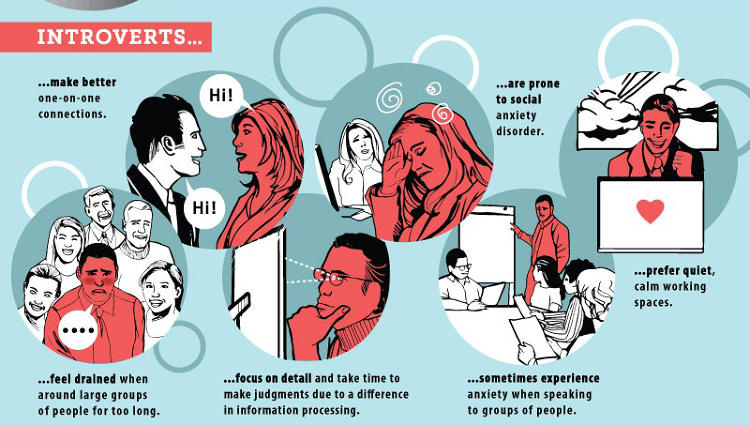 Unless you are on the other side of the planet.
Unless you are on the other side of the planet.
This item also has a positive side. If your introvert buddy finally decided to call you, you really mean a lot to him. Rejoice: this is indeed an achievement.
5. I need people to be around right now, but I don't want to talk to anyone.
It is because of this thought that introverts are very careful in choosing people to communicate with. Yes, being friends with or dating an introvert can sometimes be difficult, especially if you're an extrovert.
There are days when introverts want to do something alone: read a book or watch TV. But at the same time they want to feel the presence of another person. This is a special type of loneliness that is unlikely to be understood by extroverts.
If you are an introvert, we wish you to always have someone to call to you in such cases.
6. I wish my neighbors were a little less friendly
Naturally, introverts don't dream of rude neighbors.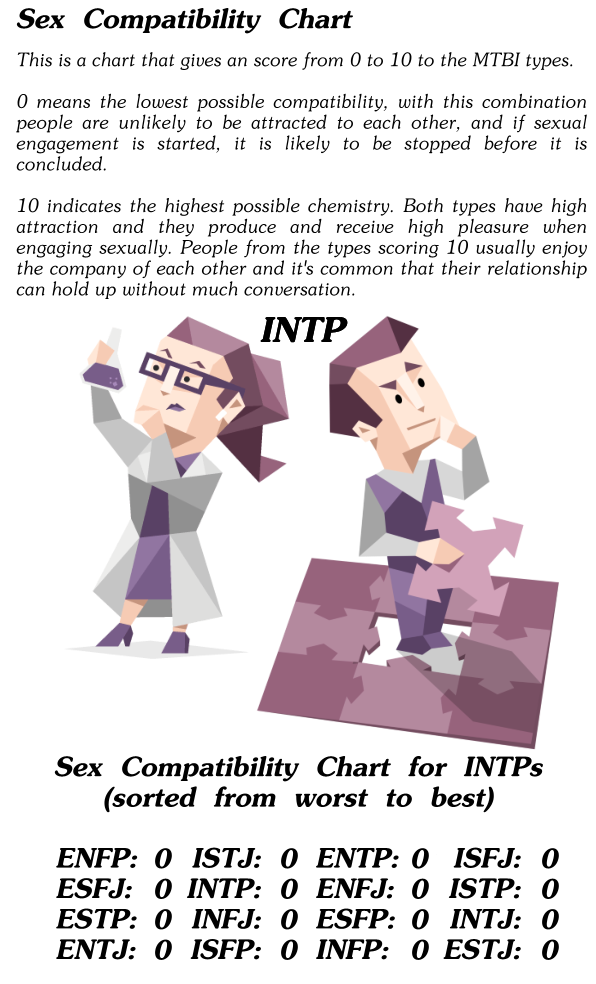 But there are very few things that cause them the same anxiety as neighbors who are overly involved. If they constantly ask how things are, or, worse, strive to visit without an invitation, this is a real disaster for an introvert.
But there are very few things that cause them the same anxiety as neighbors who are overly involved. If they constantly ask how things are, or, worse, strive to visit without an invitation, this is a real disaster for an introvert.
7. I will only go there if I can go home at any time.
Introverts always like to have a plan to escape from a party. Therefore, they often go to a meeting in their car. This is especially true for parties that they do not want to go to in advance.
8. I'd rather stay with my cat
Well, everything is clear here. Catching someone else's pet at a party is a success. But for an introvert, no one can be better than their pet. Even people. Especially people.
Who else will always understand you, never betray you, never disappoint you, and never hurt you (well, except by digging their claws into you)? For an introvert, the answer is more than obvious.
9. It's good that this party is not far from my house. his house is nearby.
 It’s easier for introverts to get out of their comfort zone if it doesn’t have to move away from the most comfortable place for them.
It’s easier for introverts to get out of their comfort zone if it doesn’t have to move away from the most comfortable place for them. 10. Wouldn't it be better to read a book?
Of course, extroverts love to read too. But perhaps only introverts will understand what it's like: in the midst of a party in a noisy bar or any other place where they would have to party to the fullest, start thinking about the book that they left at home.
11. Please don't start a conversation with me just because we're sitting next to each other.
In cafes, cinemas, on airplanes—literally anywhere people can sit next to each other—introverts repeat this mantra over and over again. It's not that they don't like to talk. In fact, most introverts really like to find out something interesting about people they don't know. What they don't like is having to carry on a conversation with a complete stranger.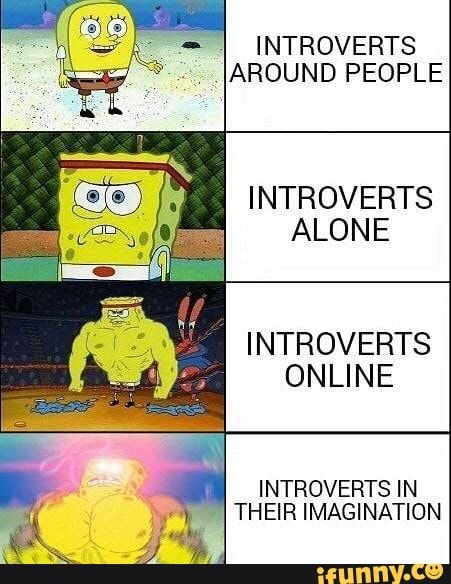 This causes introverts a terrible discomfort.
This causes introverts a terrible discomfort.
12. I could sit in my pajamas now and watch my favorite TV series
Okay, okay. Of course, this thought is not limited to introverts. But introverts are still a little more common.
And finally, one more important thought
Do not confuse introverts with misanthropes. Introverts like to spend time alone with themselves, it charges them with additional energy, and long communication with people, on the contrary, draws strength from them. But they love people, although they do not always express their emotions directly. Therefore, sometimes you can forgive them these cute weaknesses, right?
I hate extroverts. It's good that this party is not far from my house
So much has already been written and said about the complexities of the relationship between introverts and extroverts, many studies have been carried out, but meanwhile the problems of misunderstanding and conflicts based on different psychotypes have not gone away.
This article will not contain incomprehensible terms and dry figures - only practical advice and facts. I will try to briefly and clearly outline the main features and differences between the two types and how these differences affect everyday life.
So, first of all, you should dispel the myths about what an introvert is. For many, this is a shy, unsociable subject who never goes to parties, does not show his emotions, he has very few friends. Not the most attractive portrait, right? In fact, these are ordinary stereotypes that were formed due to a misunderstanding of the key principle: a way to replenish energy.
If an extrovert receives energy from the outside world, then an introvert draws it from within himself.
Therefore, one should not be surprised, for example, that an introverted child would prefer to walk alone in the park, listening to his favorite music, rather than go to the movies with a group of classmates.
All the key differences between extroverts and introverts and, of course, all subsequent problems of misunderstanding follow from the way of replenishing energy. So, let's start explaining ordinary situations that are not a problem for extroverts, but can cause negative emotions in an introvert.
So, let's start explaining ordinary situations that are not a problem for extroverts, but can cause negative emotions in an introvert.
1. Change of plans and dislike for surprises.
“I have a surprise for you! Guests will come to us in the evening, ”the extrovert will say and, most likely, he will see genuine fear in the eyes of the introvert, which may be followed by a showdown. Due to the fact that the introvert draws energy from within, he needs to prepare himself for the fact that this internal reserve will be used up due to the upcoming party / trip / meeting with friends.
Any unplanned intervention can unbalance the introvert. Of course, life almost daily throws us “surprises” and not always pleasant ones, and it is obvious that we all, both introverts and extroverts, are learning to cope with this. However, if we take those situations that we can influence - in the family, in friendly relations - then here we can make life easier for both parties and warn in advance about the upcoming holiday, the arrival of guests, etc. Then the introvert will be calm by planning the event in advance , and the extrovert will get the expected joyful reaction, and not the dumbfounded face with fear in the eyes.
Then the introvert will be calm by planning the event in advance , and the extrovert will get the expected joyful reaction, and not the dumbfounded face with fear in the eyes.
2. "Subscriber is temporarily unavailable"
Perhaps I'm not mistaken if I assume that it was an introvert who invented the answering machine. Surely, many are familiar with the situation when an acquaintance / friend / colleague does not pick up the phone and admits that he does not want to answer and talk on the phone. The most important thing is not to be offended and not to reproach the introvert, but to take this fact into account. If you really want to have a heart-to-heart talk with an introvert, then this conversation will be much more productive in person.
And if you just need to know briefly “how are you”, then an SMS message or email is better. In any case, a telephone conversation is unlikely to be long and will not bring satisfaction to either side: an extrovert will feel that the interlocutor is trying to curtail the conversation, and an introvert will suffer, trying to overcome himself.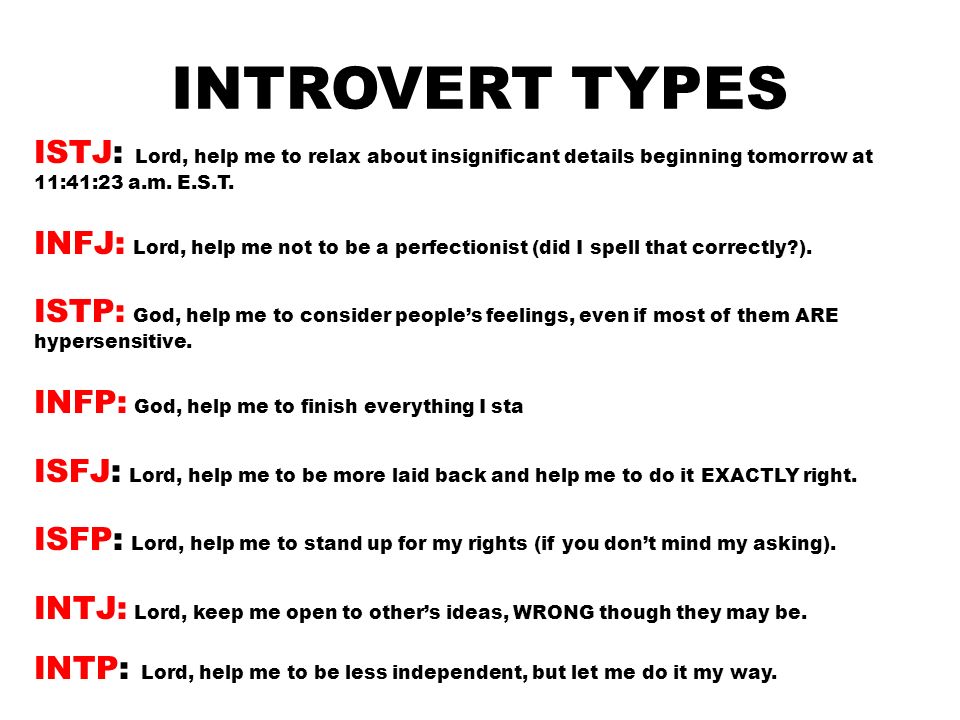 Of course, the situation is not considered here when a call is the only way to communicate, my call is in another - to often take the place of another person and try to understand him.
Of course, the situation is not considered here when a call is the only way to communicate, my call is in another - to often take the place of another person and try to understand him.
3. Unsociable loners.
One of the most common misconceptions is that introverts have no interest in people. Again, back to the way to replenish energy: due to the fact that the introvert accumulates it from the inside, he can waste it in a limited amount, so his network of contacts, as a rule, is not very extensive. In addition, a specific feature of an introvert is that he strives to ensure that his communication with people is as deep as possible, since superficial contacts and conversations “about the weather” are simply not interesting to him.
Such small talk can only take the introvert's time and energy and give nothing in return. Hence, by the way, the widespread idea that introverts dislike parties. Of course, it is more pleasant for them to spend several hours in face-to-face communication with an interesting interlocutor than to talk for twenty minutes with ten different people. Introverts are deeply attached in every way: for example, they choose friends for life, there are very few people they can call friends. As a rule, it is one or two people. You should try hard to make the introvert accept you into your circle of friends, but after that you can be sure that you have found the most faithful, reliable and constant friend who will not betray you under any circumstances. As the hero of one film said: "The main thing in this life is to find your own and calm down."
Introverts are deeply attached in every way: for example, they choose friends for life, there are very few people they can call friends. As a rule, it is one or two people. You should try hard to make the introvert accept you into your circle of friends, but after that you can be sure that you have found the most faithful, reliable and constant friend who will not betray you under any circumstances. As the hero of one film said: "The main thing in this life is to find your own and calm down."
4. Soul - darkness
Everyone who has dealt with an introvert noticed that usually a person with such a psychotype listens much more than he speaks. This is not due to the fact that he has nothing to say or that he is not interested in the topic. Rather, this is due to the introvert's desire to analyze and "read" the interlocutor. And in fact, for them, inner work, thinking about what has been said can be much more important than all the words spoken out loud. However, if you bring an introvert to a topic that is truly interesting to him, then you can see firsthand how talkative he can be when he "sits on his skate.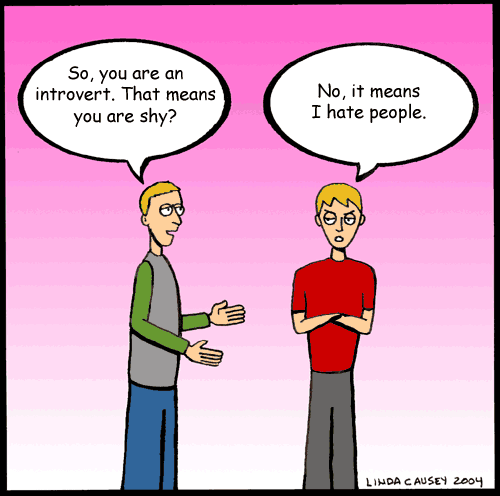 "
"
5. Little introverts
I think it is very important from childhood to explain and teach children to accept the differences between people. This will help to avoid ridiculous quarrels and teach the little person to live in harmony with other people and with himself. One of the most serious misconceptions of parents is that you can remake a child "for yourself." Alas, this is not so. Introversion-extroversion is as fundamental and unchanging a concept as temperament or DNA structure. Parents should listen very carefully and look closely at their baby in order to assess his inclinations, reaction speed, ways of interacting with other children.
Of course, it can be difficult for extrovert parents to admit that their child is completely different, that he is not happy with noisy companies and performances in front of classmates. Perhaps it will surprise them that he often just needs to read a book alone, and he cannot always immediately give an answer to a question, although he most likely knows it.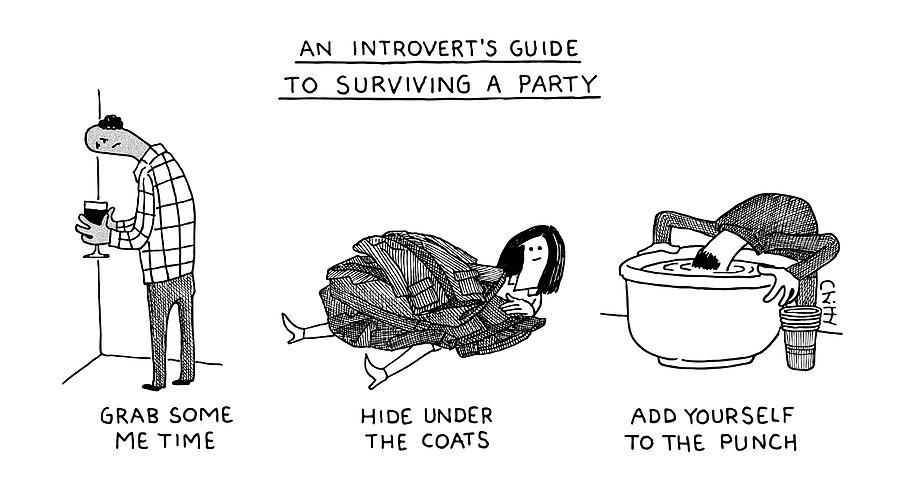 It's just that he is different and has a set of completely different qualities, in particular the ability to concentrate, which can greatly facilitate the process of his training. And if parents can interest their introvert child in something, they will receive in his person an incredibly hardworking and very motivated student, because in terms of achieving the goal, the introvert has no equal: he, like a rocket aimed at the target, moves forward, despite what obstacles.
It's just that he is different and has a set of completely different qualities, in particular the ability to concentrate, which can greatly facilitate the process of his training. And if parents can interest their introvert child in something, they will receive in his person an incredibly hardworking and very motivated student, because in terms of achieving the goal, the introvert has no equal: he, like a rocket aimed at the target, moves forward, despite what obstacles.
Summing up, I would like to say about the need to take into account the differences between psychotypes, because. this is a real-life given, and not a notion from the field of popular psychology. And, if we turn to our past experience, surely each of us will be able to remember many cases when it was these problems of misunderstanding between introverts and extroverts that caused conflicts or resentment. After all, we are not offended if foreigners do not understand us when we speak our own language. So in the case of introverts, it makes sense to take into account the existing differences and thus ensure comfortable communication and interaction.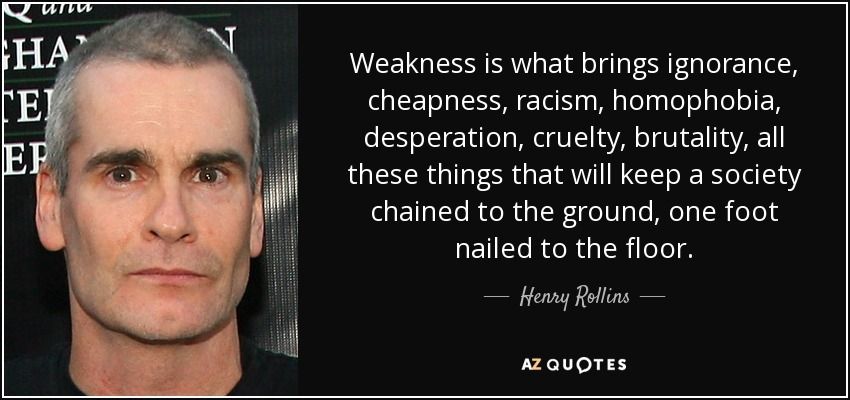
And finally, I would like to wish all of us - introverts and extroverts - peace in the soul, harmony in relationships, respect for each other. In general, "guys, let's live together."
Sincerely, introvert Maria Ulitina
P.S. For those who are interested in this topic, I can offer several wonderful books:
2) “Introverts. How to use the features of your character ”Susan Kane.
3) "Introvert in an extraverted world". Elizabeth Romantseva.
When I tell strangers that I am an introvert, no one believes me. At first glance, it seems that my life is full of communications - I speak at conferences, conduct interviews, manage a team, act as a mentor for colleagues. It is believed that the ability to communicate automatically makes a person the ringleader and the soul of the company, which does not at all fit with the image of an introvert in the minds of the majority. But I get tired of socializing like any other introvert. Just one day I realized that if you organize your own life not in spite of, but taking into account my temperament, you can restore your strength qualitatively and hardly notice any inconvenience.
There is one problem with the concept of "introvert" - everyone fills it with their own set of stereotypes. They say that introverts are unsociable, shy, do not know how to express their thoughts, do not like other people and generally prefer to sit in their lair and silently look at the computer. But if you remove all the stereotypical husks and get to the point that its creator Carl Gustav Jung put into the concept of "introvert", it turns out that this is just a person with a focus on the inner world. Interactions with the outside world are a burden for the introvert and require effort, sometimes quite serious. And in order to relax and gain strength for new interactions, he needs to be alone for a while and be silent.
Of course, there are differences between an introvert and an introvert. Introversion and extraversion is not a dichotomy, but rather a scale on which you are closer to either the center or one of the poles. Therefore, everyone needs a different time to rest - one half a day, the second is enough for half an hour. But in the 21st century, the world does not leave us alone for a minute. They call us, write to messengers, send notifications. If you do not set a framework for the world, you will never be able to rest. How can an introvert make life less tiring?
But in the 21st century, the world does not leave us alone for a minute. They call us, write to messengers, send notifications. If you do not set a framework for the world, you will never be able to rest. How can an introvert make life less tiring?
Schedule "silent hours"
We are accustomed to scheduling meetings and other activities, and assume that the time for which nothing is scheduled is rest by default. But in fact, it turns out that the rest time is occupied by new things - we call our parents, play with children, go to the hairdresser and pick up clothes from the dry cleaners. And all these activities require communication with other people, which means that an introvert cannot fully relax behind them.
When I realized that the world did not stop talking to me, I reviewed my schedule and set aside an hour in the morning, before going to work, and a couple of hours in the evening before going to bed - for “silence”. Those who, like me, work in IT are often lucky with a free schedule - we can manage our time more flexibly. The ability to sometimes work from home also helps a lot - whatever one may say, and in the office there are much more chances to start conversations with everyone in a row on any topic. It is very important to plan for "silence", and not to expect that the issue will somehow resolve itself. The world has no motivation to protect your boundaries, so there is only one way out: to defend them yourself.
The ability to sometimes work from home also helps a lot - whatever one may say, and in the office there are much more chances to start conversations with everyone in a row on any topic. It is very important to plan for "silence", and not to expect that the issue will somehow resolve itself. The world has no motivation to protect your boundaries, so there is only one way out: to defend them yourself.
Sometimes I schedule "silent hours" even during working hours. I resort to this option when the day promises to be extremely busy: for example, I already have five meetings scheduled, and they can send requests for a couple more. Then I put a blank in the calendar and during this time I focus on work that does not require communication. During this interval, it is also better to turn off mail and messenger notifications - not only because they distract from work, but also because these micro-interactions take away your resource and you get more tired.
Translator Natalia Zakalyk
Do you think you can spot an introvert in a crowd? Think again.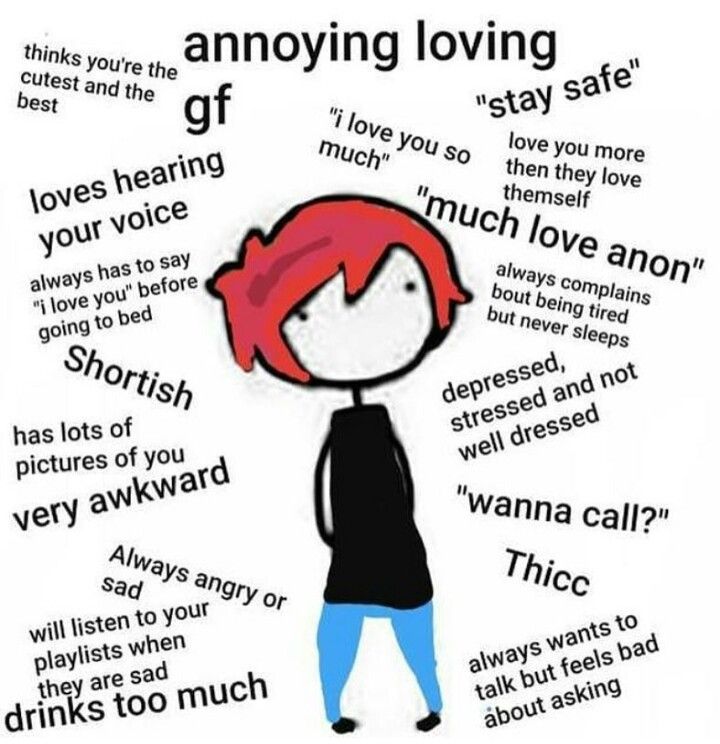 While the stereotypical introvert may be one of those who will hang out with himself at a party, sitting at a table with an iPhone in his hands, any socialite can just as well be an introverted person.
While the stereotypical introvert may be one of those who will hang out with himself at a party, sitting at a table with an iPhone in his hands, any socialite can just as well be an introverted person.
Spotting an introvert can be harder than finding Wally (the protagonist of the popular game Where's Wally?), says Sophia Dembling, author of The Introvert's Way: Living a Quiet Life in a Noisy World.
"Many introverts pretend to be extroverts."
People often don't know they're introverts (especially if they're never shy) because they can't figure out that being an introvert is more than just being alone. Instead, it would be more reasonable to pay attention to whether they lose or, conversely, gain energy by being in a team, even if the company of friends brings them pleasure.
A hidden introvert in the modern world is clearly distinguished by the fact that it is difficult for him to endure visits to large hypermarkets, it is easier for him to order from the Internet with home delivery, for example, in "Shopoz", and sit and wait with a cup of tea in an embrace with a book.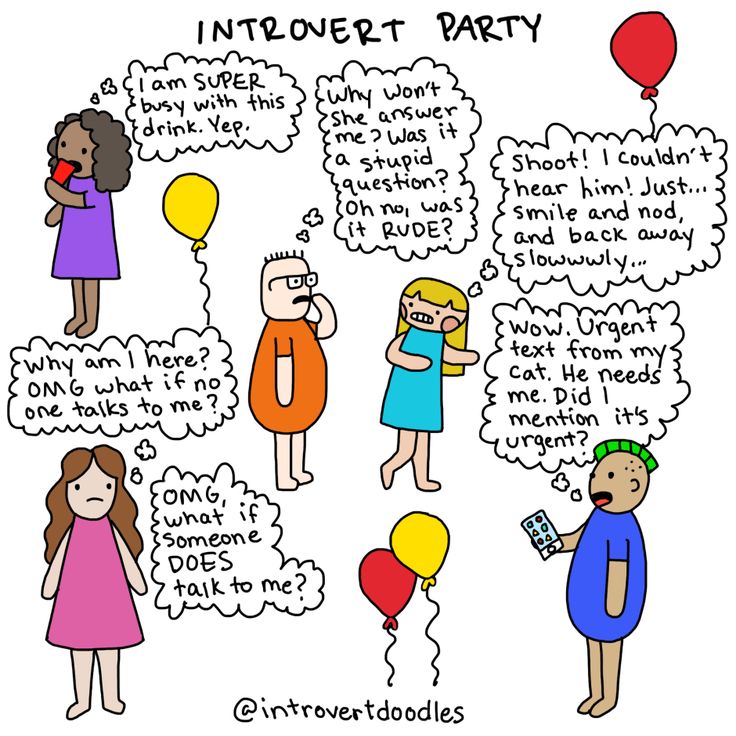
“Introversion is one of the main types of temperament. And the social aspect is just what people focus on, and this social aspect, in fact, reflects only a small part of the essence of an introvert, ”said Dr. Marty Olsen Laney, psychotherapist and author of the book Introvert Advantages.
Despite the growing controversy around introversion, there is often a misunderstanding of the personality traits that are subject to it. More recently, in 2010, the American Psychiatric Association even considered it necessary to classify "introverted personality" as a disorder by listing it in the Diagnostic and Statistical Manual (DSM-5), which is used to diagnose mental illness. Those. in America introvert = psycho.
But more and more introverts are talking about what it really means to be the "quiet" type of person. Are you unsure if you are an introvert or an extrovert? Look at the list, maybe you will find yourself in it.
1. You find trivia incredibly tiresome.
Introverts are known to have real phobias about talking about nothing, because they regard it as idle talk or an extra source of anxiety, or at least find it irritable. For many "quiet" types, conversations about everything in the world can seem insincere.
2. You go to parties - but not to meet people there
If you're an introvert, you might like to go to parties sometimes, but you probably won't because you don't like meeting new people. At a party, most introverts prefer to hang out with people they already know and feel comfortable around. If you are lucky enough to meet a new person and find mutual understanding with him, great, but you will rarely set a goal specifically to get to know someone.
3. You often feel alone in a crowd
Do you ever feel like an outsider at parties or group events, even with people you know?
“If you tend to feel alone in a crowd, you might be an introvert,” says Sophia Dembling.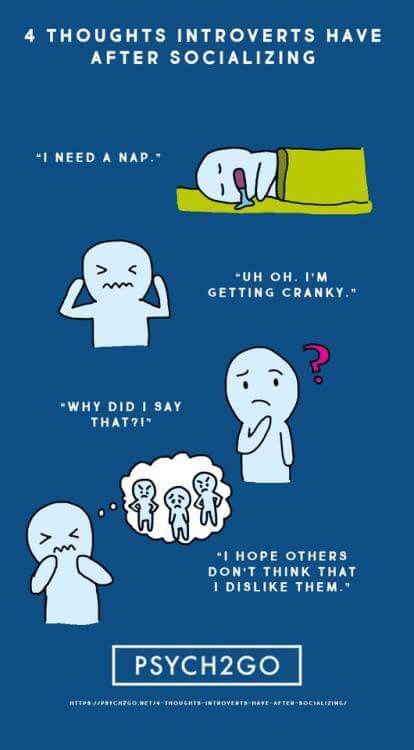
4. Making connections makes you feel like a liar.
Informal socializing (in the sense of small talk with the ultimate goal of advancing your career) can make introverts feel like overly hypocrites, because they crave to be honest in their work with someone.
“Making new acquaintances and connections becomes a difficult task if we do it in a way that causes stress on ourselves,” says Dembling, advising introverts to work in small, well-known teams, rather than in huge and mixed ones.
5. You are called "too impressionable"
Do you have a penchant for philosophical discussion and a love for thinking about books and films? If yes, then you are a real "bookish" introvert.
"Introverts like to suddenly lose control of themselves," says Dembling.
6. You are easily distracted.
While extroverts generally get bored quickly if they have nothing to do, introverts have the opposite problem - they are easily distracted and think deeply when they are required to complete a large number of tasks.
"Extroverts generally get bored much faster than introverts when performing monotonous tasks, probably because they perform well where a high level of attention is required," researchers from Clark University wrote in one paper published in the journal "Personal and Social Psychology". In contrast, introverts are easily distracted and therefore prefer a relatively inactive environment.
7. Downtime does not seem unproductive to you
One of the most fundamental characteristics of introverts is that they need to spend some time alone to "recharge their batteries." While an extrovert will feel bored or restless after spending the whole day at home alone with tea and a stack of magazines, although this kind of pastime seems necessary and joyful to an introvert.
Introverts can be excellent leaders and speakers (despite being considered quiet people), they will not necessarily be afraid of everyone's attention.
Performers such as Lady Gaga, Christina Aguilera and Emma Watson identify as introverts, and experts estimate that about 40 percent of executives have an introverted personality type.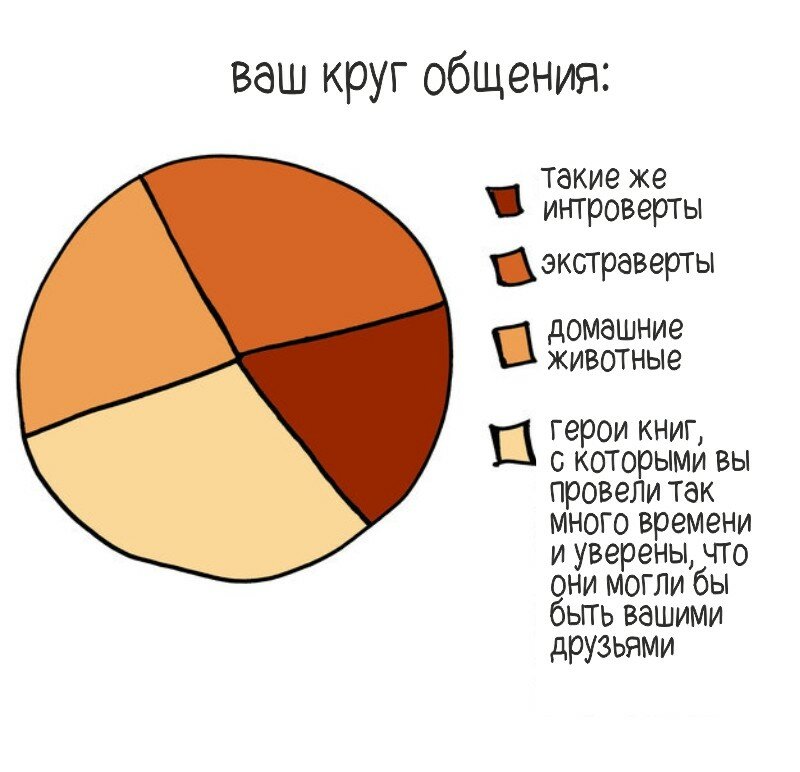
9. When you enter the subway, you sit in an empty car in the very corner, but definitely not in the middle
When given the opportunity, introverts tend to try not to be surrounded by people on all sides.
“We love to sit in places where we can leave whenever we want,” says Dembling. "When I go to the theatre, I want to take an aisle or back seat."
10. You start to shut down after being active for too long
Do you start to get tired and prefer not to answer questions after being active for too long? It is likely that you are trying to conserve your energy. “Activities in the outside world make all introverts expend energy, after which they need to leave and renew their strength in a calm place,” says the same Dembling. If there is no quiet place nearby, many introverts can simply ignore what is happening.
11. You are in a relationship with an extrovert
It's true that opposites attract and that's why introverts are often attracted to outgoing extroverts who make them have fun rather than being too serious.
"Introverts sometimes pay attention to extroverts because they also like to have fun," says Dembling.
12. You'd rather be an expert in one area than try to do everything at once
According to Olsen Laney, the main principles of thinking that guide introverts allow them to focus and think about specific things for a while, so they focus on studying one subject intensively and improving their skills.
13. You actively avoid any show that may involve audience participation
Because there really isn't anything scarier than that, right?
14. You review all your calls before answering (even from friends)
You may not answer the call even from the people you love, but you will definitely call them back as soon as you are mentally ready for this and gather the energy to talk.
“For me, when the phone starts ringing, it's like someone popping out from behind a closet and yelling “Boo!”,” says Dembling. "I really enjoy having long phone conversations with close friends, as long as it's not sudden calls that sound like a bolt from the blue."
"I really enjoy having long phone conversations with close friends, as long as it's not sudden calls that sound like a bolt from the blue."
15. You notice details that others don't.
The positive side of deep reflection is that it allows introverts to often have a keen eye for detail, that is, to notice things around them that others might not see at all. The study found that introverts have higher brain activity when processing visual information compared to extroverts.
16. You constantly conduct an internal monologue
“Extroverts don't have the same internal monologue that we do,” says Olsen Laney. “Most introverts need to think first before they talk.”
17. You have low blood pressure
A 2006 Japanese study found that introverts tend to have lower blood pressure than their extrovert counterparts.
18. You may be called an "old man at heart" from about 20 years old.
Introverts notice and remember a lot of information, and they always think before they say something, which makes them seem smarter than others.
"Introverts tend to think for a long time," says Dembling. "It helps them seem wise."
19. You don't enjoy your surroundings.
Neurochemically speaking, things like huge parties are just not your thing. Extroverts and introverts differ significantly in how their brains process impressions through their pleasure centers.
Researchers have demonstrated this phenomenon by giving Ritalin, an ADD-type drug that stimulates dopamine production in the brain, to introverted and extroverted students. They found that extroverts most often associated achieving feelings of euphoria with a surge of dopamine from the environment they were in. Introverts, on the other hand, did not associate feeling with their environment.
20. You look at the whole picture.
When Jung described the way introverts think, he explained that they are more interested in the idea and the big picture than in facts and details. Of course, many introverts excel at tasks with a lot of detail, but they often have the ability to perceive more abstract concepts.
"Introverts really enjoy abstract discussions," confirms Dembling.
21. You were often asked to "get out of your shell"
Many introverted children think that something “wrong” is happening to them if they are inherently less open and assertive than their peers. Introverted adults often report that when they were children, they were often told to come out of "their shell" and finally get involved in class life.
22. You are a writer
Introverts generally communicate better in writing than in person, and many are attracted to solitary, creative writing. Most introverts (like Harry Potter author JK Rowling) say they feel most creative when they have time to be alone with their thoughts.
23. You take turns going through the stages of work, loneliness and periods of social activity
Introverts can move around their introverted "attitude", which suggests that they must find a balance between their solitude and social activities. But, as Olsen Laney argues, when they move too much (and perhaps even overexert themselves, revolving in society and business for too long), they get stressed and need to go back to solitude. This can manifest itself in periods of increased social activity, and then balancing it with a period of inner seclusion.
But, as Olsen Laney argues, when they move too much (and perhaps even overexert themselves, revolving in society and business for too long), they get stressed and need to go back to solitude. This can manifest itself in periods of increased social activity, and then balancing it with a period of inner seclusion.
"They have special recovery points that seem to correlate with how much they interact with others," says Dembling. "We all have our own cycles."
How much of an introvert are you?
Copyright website © - Natalia Zakalyk
P.S. My name is Alexander. This is my personal, independent project. I am very glad if you liked the article. Want to help the site? Just look below for an ad for what you've recently been looking for.
Obviously, any division of people into classes, types, signs of the zodiac or any other features is quite subjective. However, there are some patterns and parallels that lead to the conclusion that one person is an extrovert, and the other is an introvert. We will talk about these parallels and patterns in the framework of this article.
We will talk about these parallels and patterns in the framework of this article.
Extroverts and introverts
Extroverts are sociable people who communicate easily. It is important for them to constantly be surrounded by other people, and better - in the spotlight. They have many friends, many acquaintances, many subscribers in social networks. Because for them the number of acquaintances is an indicator of social status.
Extroverts don't like to “pull rubber” – if they take up some business, they strive to achieve success in it as soon as possible. If something doesn’t work out for an extrovert, he makes even more efforts to achieve his goals.
Introverts are the exact opposite of extroverts. When it comes to acquaintances and friends, they prefer “quality” over quantity. That is, for them, a single close friend is much more valuable than a hundred superficial acquaintances.
Introverts like a quiet environment, "without noise and dust. " And they work as productively as possible in solitude.
" And they work as productively as possible in solitude.
Introverts like to delve into themselves and others. They are interested in the meaning of certain actions of people. They like to analyze events, situations and their own behavior. If something does not work out for an introvert, he looks for reasons for this, as a result of which he can greatly “slow down” in one place.
It is important to understand that not all introverts are social phobes. But most sociophobes are introverts.
Hypersensitivity of introverts
One of the traits that introverts have in common is increased sensitivity. An introvert is easily hurt or offended. And the offended introvert can “carry” in his soul for years, which makes him rather poorly adapted to society.
As a rule, introverts are empathic. They are strongly imbued with the misfortunes of other people. Their behavior is built on the principle of "so that everyone is happy." In real life, this behavior greatly limits them, because they are afraid, for example, to cause discomfort to another person if they call him to sell something.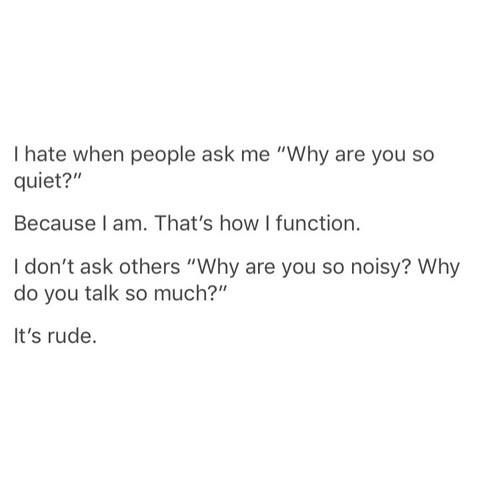
Any mistake for an introvert is a great tragedy, and often also a “painful lesson”. If an extrovert, having made a mistake, is looking for workarounds, an introvert is looking for the causes of the mistake and is completely immersed in the analysis. The longer this very analysis lasts, the more difficult it is for an introvert to start moving forward. He is afraid to make the same or new mistakes.
Positive assessment of other people is painfully important for an introvert. Introverts want to please everyone, they want to please. They can hide or mask their negative character traits, if only to avoid condemnation or censure by society.
Acquaintance with a new person for an introvert is always a lot of stress. After all, an introvert does not stop thinking for a second about how he looks in the eyes of the interlocutor, what impression he makes, etc.
A conscious choice, upbringing, or “it happened so”?
Some psychologists say that a child is a “blank sheet of paper”.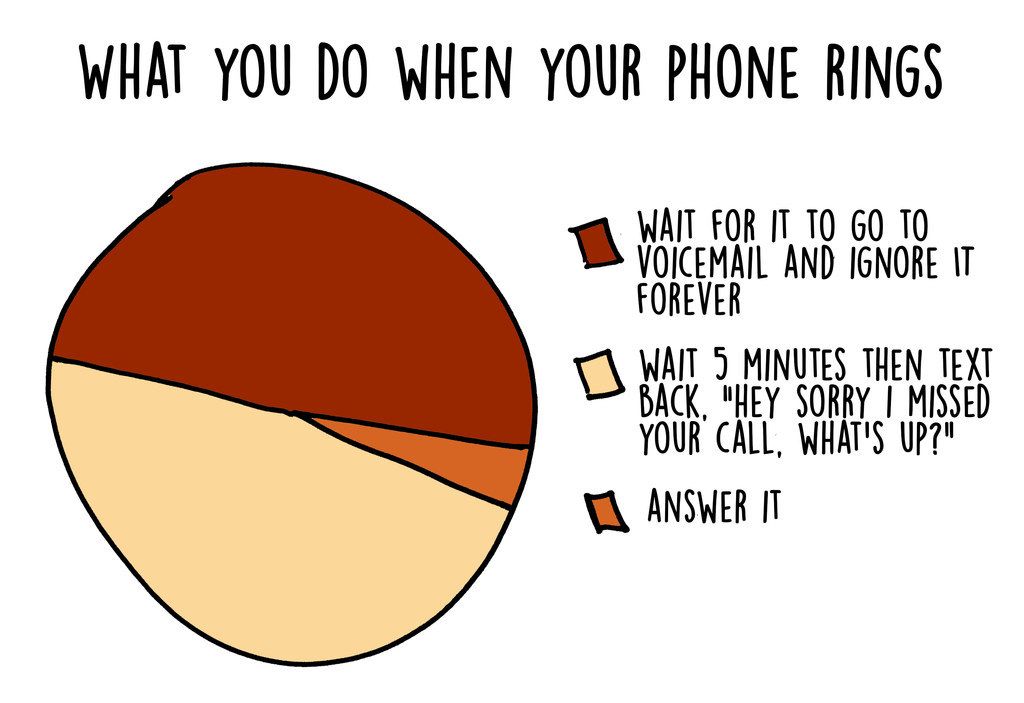 And parents can make him the kind of person they want. As if we are talking not about a living being, but about a plasticine man.
And parents can make him the kind of person they want. As if we are talking not about a living being, but about a plasticine man.
The statement about a “blank sheet of paper” is rather meaningless, because already at a very early age one can notice that children do not look alike. So, some are very noisy, emotional and restless (extroverts), while others are quiet and calm, building a tower of cubes in the corner (introverts).
Nevertheless, upbringing plays an important role in shaping personality and how pronounced an introvert a person will become if a tendency to this manifested itself in childhood.
An introverted child is easily hurt. And each offense inflicted on him is formed into a complex or phobia.
It is important to understand that no person makes a conscious choice to be a cheerful and sociable extrovert or a quiet and inconspicuous introvert.
However, introverts often attempt to "change themselves"...
What if you are an introvert?
The fact is that being in a constant, almost non-stop process of soul-searching, introverts come to the conclusion that their features are their shortcomings.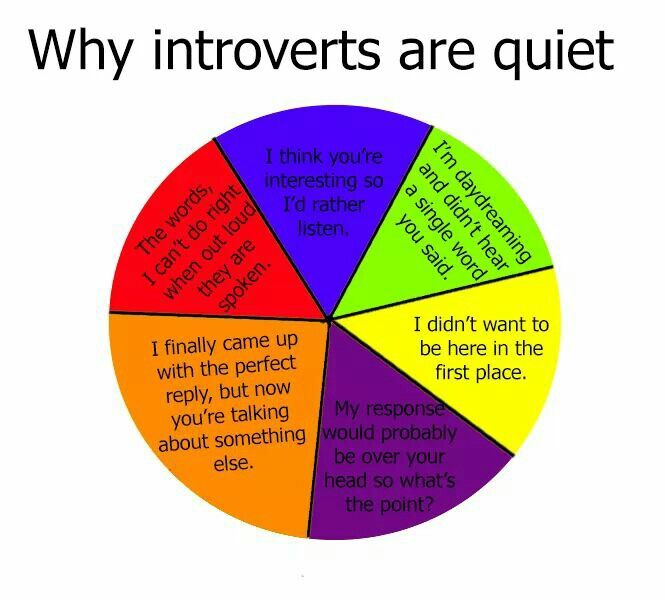 From this follows another conclusion - you need to get rid of "shortcomings", which means - to change ...
From this follows another conclusion - you need to get rid of "shortcomings", which means - to change ...
Unfortunately, such attempts are rarely successful. Indeed, instead of learning to accept the real self, the introvert begins to pretend to be someone else - more sociable, less touchy and emotional, etc. He puts on a mask and tries to force himself to a) love this mask, b) make the mask turn into a face.
Introverts don't actually have any flaws. There are only certain features. They are neither positive nor negative, they are neutral. This is what it is and what you need to learn to live with. But like live with it, we'll talk in a free webinar
An introvert is neither a sentence nor a disease. As an introvert, you can achieve big goals, you can enjoy life and earn big money. Most importantly, stop looking for problems in yourself and trying to change yourself.
You're all right. And it has always been fine.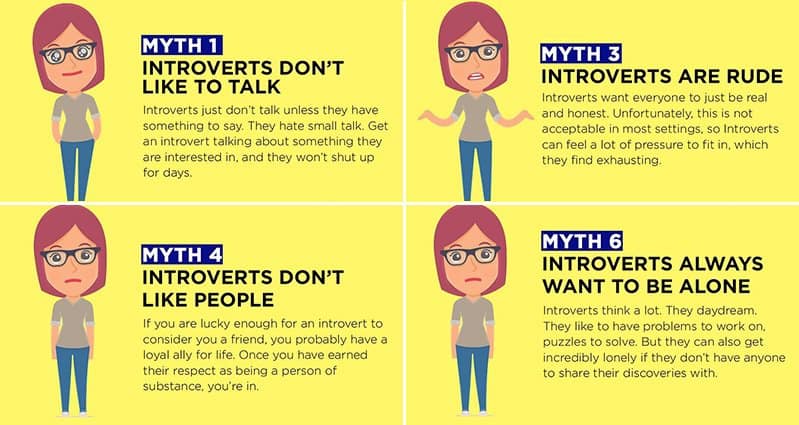 Come to the webinar and learn how to achieve everything you want while being yourself!
Come to the webinar and learn how to achieve everything you want while being yourself!
Tell a friend at
I am an introvert.
I like to live alone, to be alone, to relax and recharge - I need to be alone.
I do not know how to behave at parties and in unfamiliar companies. It's all stress for me, not fun.
I take root in new teams for a long time.
I prefer to remain inconspicuous and "keep my head down".
As a child, the most terrible moment for me was when they came to visit. Especially this one: "Sveta, go say hello to Uncle Volodya." I liked Uncle Volodya, but I terribly did not want to greet anyone. Once, when I heard Uncle Volodya in the corridor, I hid in a closet and sat there until he left. Three hours. A specific uncle has nothing to do with it: I was terribly embarrassed to go out to people. To all.
At school I was the grayest of all possible mice.
When I found myself in a big company, I always had a strange feeling that I did not belong to it and that I just happened to pass by. Even if we've all known each other for three years. Even if it was my own birthday!
Even if we've all known each other for three years. Even if it was my own birthday!
I read Carnegie's books on how to win friends, and I thought: well, how am I going to go to my classmates now, start talking and smiling? After all, they know very well what I am! No one will believe me, and everyone will laugh.
At the same time, I have always been fascinated by crowds.
How does it work, I thought, when you accidentally find yourself at a concert of a group that you never even liked, the mood is lousy, and before you have time to come to your senses, you are already jumping along with everyone in the fan zone almost to the ceiling, and you are overwhelmed delight?
What about marathons? Yes, running out of the starting corridor along with a thousand of the same crazy ones, you don’t run with your feet, you soar on wings and don’t touch the ground at all!
What does it feel like when you and a team of 50 people complete a big project at work? And it does not matter at all what role you played in that very team.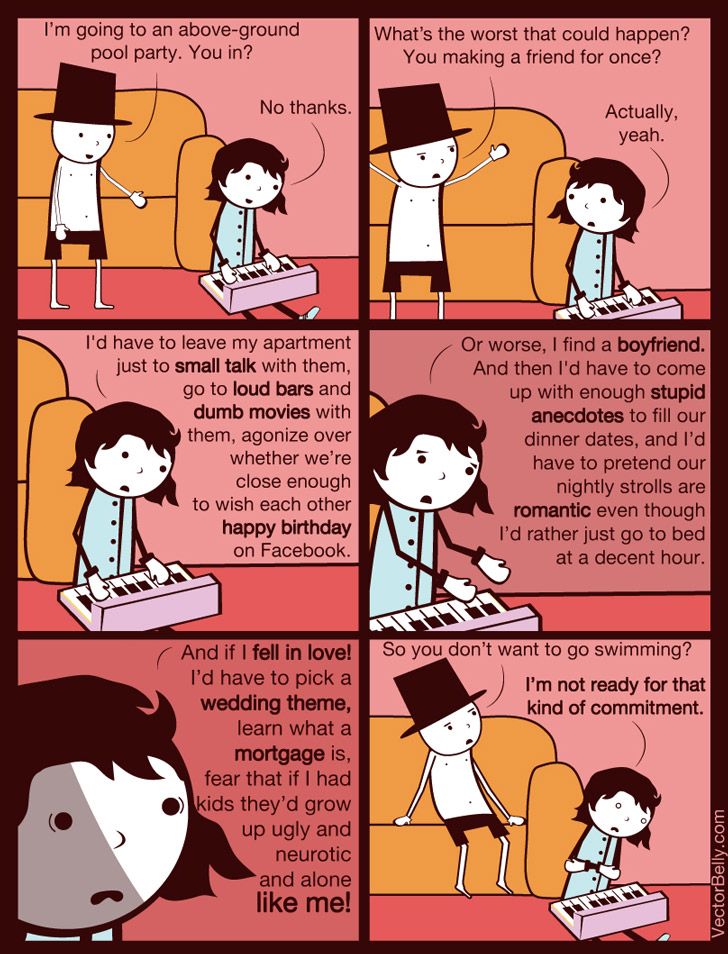 Even the cleaners. You too feel this joy and this belonging!
Even the cleaners. You too feel this joy and this belonging!
And what about the Olympics, when every single one feels proud of their country, even if yesterday they still vilified it with their last words or even left and renounced their citizenship?
Yes, when people get together, when they are tuned to the same wave, this is a force that cannot be expressed in words.
And all my life I wanted to belong to something like that. A big and noisy group of friends or an interesting project. I wanted to be and do with people!
But it didn't work. Therefore, over time, I decided that all these people are not for me. I'm an introvert, I don't need anyone. There are girlfriends with whom you can communicate in private, and that's enough. In general, these people who gather in flocks are somehow strange, what for they are needed. You have to be self-sufficient! There is nothing to break your nature and try to fit into big companies. It's just extra stress for me.
I was afraid of people: my old friends know that my favorite facial expression was a la “brick”. On the street, they never tried to hand me leaflets, passers-by didn’t ask for directions, guys didn’t come up to meet me, no one sat in the subway in an empty seat next to me. All because I could incinerate anyone I met with a single glance. It was really just a defense.
After graduating from school, I decided to completely change my life and went to study journalism. It was scary, because I suspected: they would send to people!
And so it happened.
During my first television practice, I was given an operator, a sound engineer, and even a car. When this whole company was behind me, of course I had to approach strangers and ask questions. It turned out that this is not very scary. It seems that no one even sent me.
Getting a job in the cinema, I already heard at the interview: we will hire you if you are ready to fight your complexes. I wanted this job to shiver, I had to lie that I was ready.
I had to call from the very first day. To strangers, often with very strange questions, often famous and very busy, and all of them, of course, saw me you know where. Sometimes for half a day I gathered my strength to make one call. Learned this too. A few months later, without blinking an eye, she could call anyone, even the president. True, my confidence ended outside the set, but in life everything remained the same.
The next discovery was travel. Reading the reports of experienced people, I never understood how this was possible: I arrived in a new country, met the locals there, and now you are walking at a traditional Indian wedding. When I traveled, it was like this: I came to the hotel, talked with my girlfriend, with whom I arrived. At most, I managed to hang out with a seller from a gift shop. And that happened for the most part from his desire to sell us a hookah. How do people meet while traveling? Mystery.
The answer came in the form of a drunken Englishman who sat down with me in the restaurant of a shabby Indian hotel. I languished over my kyufta, from which steam poured out of my ears, and dreamed of one thing: that my idiotic vacation would end as soon as possible. Arrived alone in Calangute, Goa, and seems to be the only white tourist on the entire coast. I got tired of walking very quickly, the Indians did not allow passage, there was no smell of yoga, the food was disgusting and I spent my days in the hotel, enjoying the feeling of guilt and hopelessness. The Englishman, who, by the way, no one asked, decided: you urgently need to Hampi, because it is heaven on earth.
I languished over my kyufta, from which steam poured out of my ears, and dreamed of one thing: that my idiotic vacation would end as soon as possible. Arrived alone in Calangute, Goa, and seems to be the only white tourist on the entire coast. I got tired of walking very quickly, the Indians did not allow passage, there was no smell of yoga, the food was disgusting and I spent my days in the hotel, enjoying the feeling of guilt and hopelessness. The Englishman, who, by the way, no one asked, decided: you urgently need to Hampi, because it is heaven on earth.
How I got there is another story.
The fact is that everyone there looked like they had known each other for a hundred years. And everyone was having fun and hanging out. And I was alone. I was alone for three days, and I felt terrible. And at one point, an unknown guy came up to me and said something. Looks like "hello".
Christmas tree-sticks, is it that simple?
I met him then, and then with many others, and learned to remove the brick expression from my face.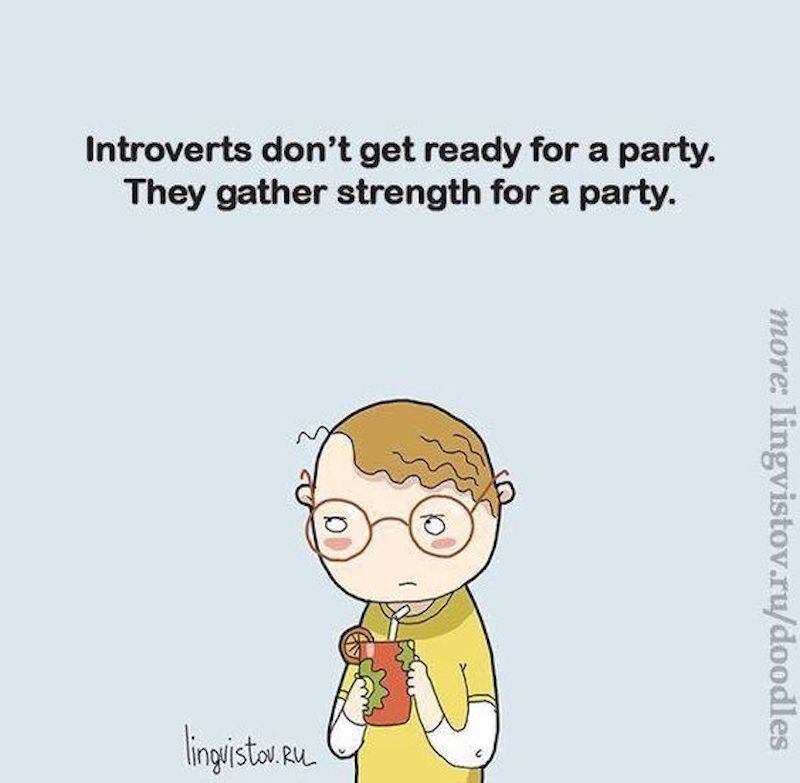 I could speak first myself, and people started talking to me! That trip quickly hit the top of the list of the best adventures and stayed there for a long time.
I could speak first myself, and people started talking to me! That trip quickly hit the top of the list of the best adventures and stayed there for a long time.
True, upon returning to Moscow it was all over. As if that mode was turned off and the brick mode was turned on again. But I already knew that inside me lives an open, friendly person who can meet others! One thing was not clear: how to transfer this mode to permanent.
It remained to train. Solo travel played a huge role in this matter. Travelers are more open and friendly than just people on the streets. They are the first to speak to you. When traveling, there are often situations when you have to ask for help. And there is no one to ask, except strangers!
Looking back, I constantly put myself in situations where communication was necessary. It was often hard, and scary, and uncomfortable. But I have learned! The journey took only eight years.
I feel comfortable with people. Now I can talk to them myself.